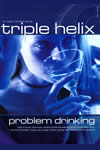'Words mean what I want them to mean,' says Humpty Dumpty in Lewis Carroll's Alice in Wonderland. He is not alone. Today's teenagers, for example, use 'cool, 'random' and 'wicked' in ways puzzling to their elders. Christians, too, can alter a good word's meaning. Our Lord Jesus came amongst us as 'the Word' (John 1:1). By his precise use of the word of God he defeated his tempter (Matthew 4:1-11). We must learn and use God's word as he did to wield well 'the sword of the Spirit' (Ephesians 6:17). The obvious enemy strategy would be to disarm us, but a subtler alternative is to reduce the impact of certain godly words.
Thus, 'ministry' could stand for praying over someone, 'sharing' for a mutual baring of souls and 'worship' for standing up singing, led by the 'worship leader'. English usage can change with time, but accuracy is important when using words already translated from another language. Many medical words of Greek origin, such as anaesthetic and hypodermic, are already in popular parlance but non-professionals might confuse 'hypochondrium' with 'hypochondriac.' Similarly, Christian songs are popularly referred to as 'the worship' because the singers often look worshipful, yet in the original text the words used for worship have virtually no musical connotations. A New Testament Greek concordance, or even a standard dictionary, clarifies this.
Translators use our English 'worship' for several words in the original text. These variously imply homage, obeisance, piety and awe, with reverential acknowledgment of God's claims (Exodus 4:31). As a response to Jesus, worshippers frequently bowed down or fell at his feet (Matthew 2:11, Mark 5:33). The Greek word latreia covers both 'worship' and 'service' and is used by Paul in Romans 12:1. He defines as a spiritual act of worship the sacrificial offering of the whole body (NIV), also translatable as our 'reasonable service' (AV).
Biblical words used for praise are different. They convey nuances of lauding someone, of speaking or singing praise. Psalmos indicates singing to a harp (hence our 'psalm') and psallo to any associated twitching or twanging. The Greek humnos (compare 'hymn' ), refers to a song of praise to God. Tuneful praise can be translated as 'making music' to the Lord (Judges 5:3; Psalms 27:6, 147:7). It is when wholly focussed on our crucified, risen and enthroned Lord in heaven that we find praise turns to worship (Revelation 5:9-14).
This puts a different slant on the call to 'have a time of worship.' Making music to the Lord can indeed inspire a worshipful response, but only he knows the truth behind the oft-cited comment, 'The worship was wonderful'. Some who are persecuted for their faith continue to sing their Lord's praises even to the death - wonderful worship indeed. Few of the rest of us produce songs of praise during a night call, or when the clinic overruns and our blood sugars drop. True worshippers will worship in spirit come what may (John 4:23- 24) and Paul's challenge remains - to offer our lives and lifework as a sacrificial offering to the one who, praise be, offered so much for us.
'Let's have a time of worship? ' Yes, a lifetime! - but we must understand that true worship can become a matter of life and death.
































